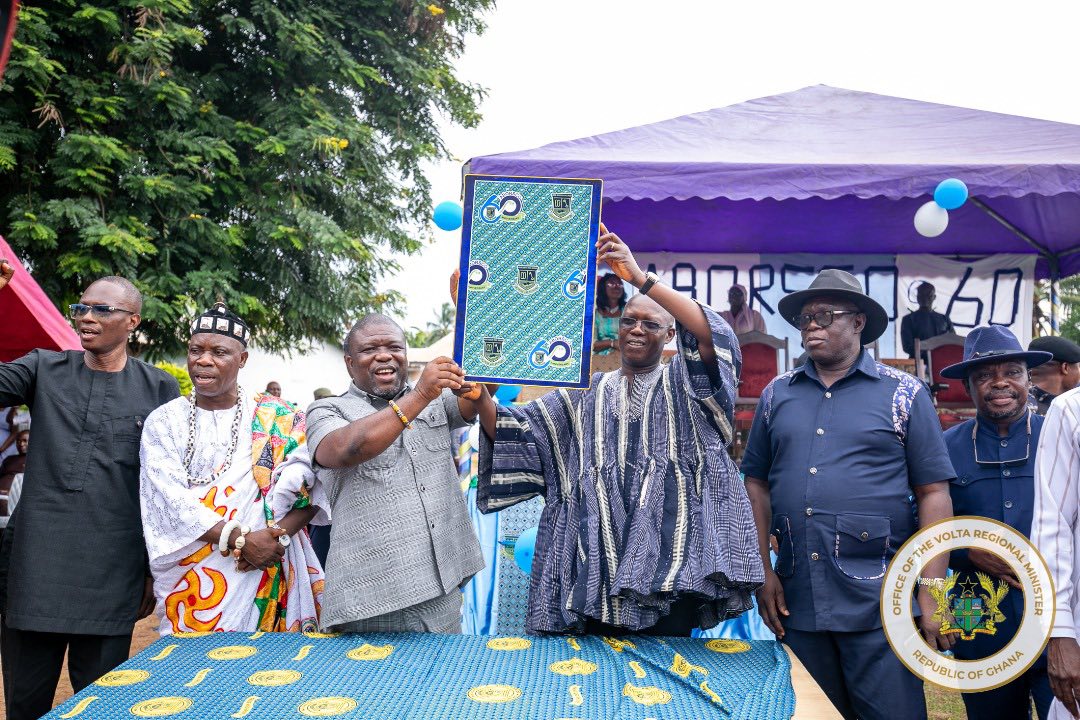The Ghana Lands Commission, a cornerstone of national development through its role in land administration, management, and registration, faces an uphill battle against deep-seated challenges. These systemic issues, ranging from endemic corruption and inefficient processes to inadequate infrastructure and rampant land disputes, are compounded by concerns over the suitability of its current acting Executive Secretary, Professor Anthony Owusu-Ansah.
The Lands Commission’s Enduring Gauntlet of Challenges
The Commission’s operational landscape is marred by several critical issues:
- Pervasive Corruption and Erosion of Public Trust: The Lands Commission is widely perceived as one of Ghana’s most corrupt public institutions. Unofficial charges, extortion, and significant bribes for land transactions are commonplace. A lack of transparency, exacerbated by manual, paper-based systems, makes it difficult for the public to access reliable information and track transactions. The pervasive involvement of intermediaries further fuels fraudulent dealings and inflated costs, with staff often deflecting blame to external parties.
- Inefficient and Archaic Processes: Reliance on manual, paper-based systems for land records leads to chronic delays, missing files, difficulties in accessing credible information, and sluggish record updates. Despite ongoing efforts, the elusive goal of full digitalization continues to hinder transparency, efficiency, and real-time data management. Complex bureaucratic procedures further contribute to public frustration and protracted waiting periods for land acquisition and registration.
- Inadequate Infrastructure and Data Deficiencies: A significant impediment is the absence of a comprehensive national base map, a critical tool for accurate land demarcation and effective mandate execution, requiring substantial funding. Existing land data is often incomplete, poorly managed, and overlaps with proper maps, creating challenges in identifying true landowners and securing titles. Furthermore, the Commission grapples with financial, human, and logistical constraints, impacting staff resources, tools, and the overall capacity for effective land administration.
- Rampant Land Disputes and Insecure Tenure: The pervasive issue of multiple sales of the same land parcel is a primary driver of land disputes and litigation, frequently escalating into violent confrontations involving “land guards.” The lack of reliable maps and plans contributes to indeterminate boundaries, particularly for customary or stool lands, leading to conflicts between landowning groups and the state. The overall fragility of the land administration system, coupled with a dearth of clear and accessible property ownership information, exacerbates the insecurity of land tenure.
- Weak Governance and Political Interference: The Commission operates within a weak corporate governance framework, characterized by an imbalance of executive and nonexecutive directors and domination by political appointees. This often leads to indiscipline, unethical conduct, and susceptibility to political manipulation. Poor coordination among traditional landowners, district assemblies, and the Lands Commission further contributes to uncoordinated spatial development and difficulties in land allocation.
The Professor in Question: Scrutiny Over the Acting Executive Secretary
Amidst these profound challenges, the appointment of Professor Anthony Owusu-Ansah as the acting Executive Secretary has drawn significant scrutiny and criticism, raising questions about his suitability for a role demanding unimpeachable integrity and impartiality.
Concerns about his suitability stem from several allegations:
- Allegations of Unethical Conduct: Reports from his tenure at GIMPA cite allegations of unethical conduct, including awarding unearned grades to favored students. The unsettling “condom professor” moniker reportedly used by some female students on campus further suggests a history that could indicate a serious lapse in ethical grounding, a critical attribute for a leader overseeing a sector rife with corruption.
- Perceived Partisanship: Concerns have been raised about his reported partisanship, with some sources claiming that his appointment was celebrated by insiders of the ruling New Patriotic Party (NPP), and former students recalling his “public outrage when NDC polling station executives pulled off a surprise campus victory.” In a highly sensitive sector like land administration, which often intersects with political interests, a perception of partisanship could erode public trust and compromise the Commission’s neutrality.
- Previous Vetting Failure: It has been reported that Professor Owusu-Ansah previously failed a vetting exercise due to the alleged unethical conduct, further questioning his suitability for a high-profile public office that requires impeccable credentials.
- Risk to Lands Commission’s Image: Given the Lands Commission’s existing struggles with corruption and land grabbing, some observers view his appointment with alarm, describing it as a “catastrophe in waiting.” The analogy of “placing a cobra in charge of fresh eggs at a poultry farm: a guaranteed disaster” underscores fears that his presence could exacerbate existing problems rather than provide solutions.
While Professor Owusu-Ansah has recently been tasked by the Lands Minister to lead the decentralization process of the Lands Commission’s operations and has pledged his commitment to the vision, the historical concerns and perceived lack of impartiality raise significant questions about his ability to inspire confidence and effectively lead the charge against the systemic corruption and inefficiencies plaguing the Commission. Some even believe that his appointment was inspired by opposition elements through their network in the current administration to help cover their questionable land-grabbing activities.
Charting a Course Forward: Solutions and Essential Leadership
Addressing the Lands Commission’s deep-rooted challenges demands a comprehensive approach coupled with transformative leadership:
- Aggressive Digitalization and Automation: This is paramount. Implementing a robust, secure, and fully digital land registry system is crucial. This entails scanning all existing paper records, creating digital maps, and establishing a unified, accessible database. Exploring blockchain technology for land transactions could further enhance transparency, immutability, and security, minimizing fraud and double sales. Developing user-friendly online platforms for all land services would drastically reduce physical interactions and reliance on intermediaries.
- Unwavering Anti-Corruption Drive: Implementing stringent anti-corruption policies, regular audits, whistleblower protection, and severe penalties for corrupt officials is nonnegotiable. Comprehensive public education campaigns must inform citizens about legitimate land acquisition processes, fees, and their rights to reduce their vulnerability to exploitation. Reviewing and improving staff remuneration and working conditions can also boost morale and diminish the temptation for illicit practices. Clear, publicly displayed service standards, timelines, and fee schedules are also essential.
- Strengthening Infrastructure and Data Management: Prioritizing and securing funding for a comprehensive national base map is critical for accurate land mapping and boundary demarcation. Full integration of Geographic Information Systems (GIS) for accurate mapping, planning, and management of land resources is essential. Rigorous data validation and quality control measures are needed to ensure the accuracy and reliability of land records.
- Robust Policy and Legal Reforms: Diligently reviewing existing land policies related to titling, registration, land rights, and state leaseholds is necessary to address inconsistencies. Effective implementation and enforcement of the Land Act, 2020 (Act 1036) are vital to streamline administration, reduce disputes, and enhance tenure security. Working towards better articulation and harmonization between customary and state land tenure systems will help reduce conflicts.
- Enhanced Stakeholder Collaboration and Decentralization: Fostering stronger collaboration among the Lands Commission, traditional authorities, district assemblies, and other relevant government agencies is crucial. Empowering and adequately resourcing District Assemblies to play a more effective role in local land management and dispute resolution is vital. Involving local communities in land management processes, especially in boundary demarcation and conflict resolution, can significantly reduce conflicts.
The Indispensable Leadership Profile
Tackling these formidable challenges demands a specific kind of leadership at the helm of the Lands Commission:
- Visionary and Strategic: A leader with a clear and compelling vision for a modernized, efficient, and corruption-free land administration system. They must be strategic thinkers capable of developing and executing long-term plans for digitalization, infrastructure, and policy reforms.
- Integrity and Accountability: Unimpeachable integrity is paramount, setting a strong ethical tone from the top. The leader must foster a culture of accountability, ensuring that performance is monitored, and non-compliance or corrupt practices are addressed swiftly and transparently.
- Transformational and Change-Oriented: This requires a leader who is not afraid to challenge the status quo, initiate bold reforms, and overcome inherent resistance to change. They must be champions of technological innovation and possess the resilience to navigate complex political landscapes and vested interests.
- Collaborative and Engaging: Skilled in engaging and building consensus among diverse stakeholders, including government ministries, traditional authorities, civil society, and the private sector. The leader must also be a team builder, fostering a positive work environment and empowering staff.
- Results-Oriented and Proactive: A leader with a strong focus on achieving tangible results and improving service delivery for the Ghanaian public. They must be able to anticipate challenges and proactively implement solutions rather than reacting to crises. 2020
- A leader who the staff can trust to work with, and has staff welfare at heart.
In conclusion, the Ghana Lands Commission stands at a critical juncture. Its ability to fulfill its mandate hinges on a decisive shift towards transparency, efficiency, and accountability. This transformation requires not only comprehensive policy reforms and technological upgrades but, crucially, a leadership that embodies integrity, vision, and the unwavering commitment to dismantle the entrenched challenges that have long plagued this vital national institution. Without such leadership, the path to a truly effective and trusted land administration system in Ghana will remain fraught with obstacles.
By Raymond Ablorh, Policy, Strategy & Communication





































